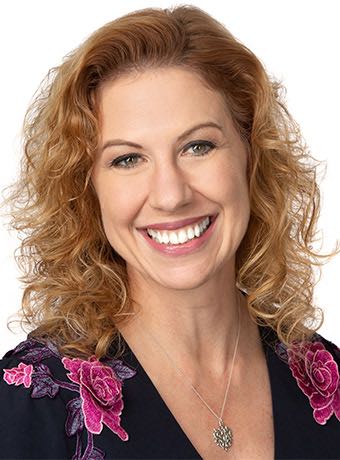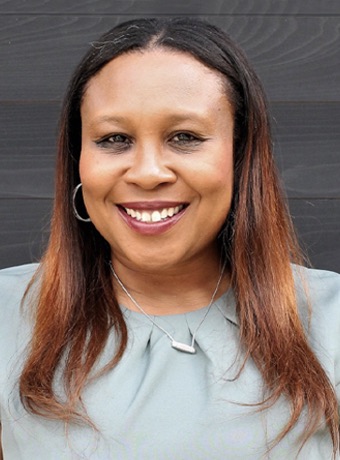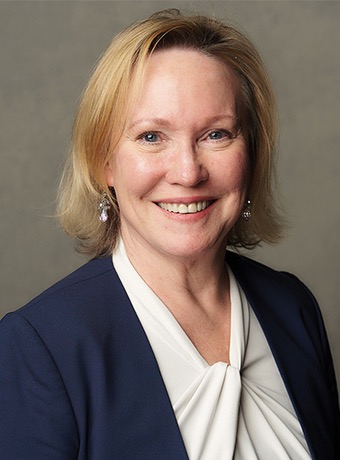9 minutes
How can someone new to their role or the industry successfully acclimate? By being prepared and turning newness into an asset.
Someone once said confidence and courage come through preparation and practice. For those new to their positions, especially leadership roles, preparedness couldn’t be more essential. And for women, the journey to confidence can be complicated.
Collaborate and Acclimate
One way to carve out your place on a leadership team is by gaining a thorough understanding of the situation. Deeper appreciation of the skills and expertise needed in the role may come from industry research, meeting others in similar roles, finding a mentor—and, from the employer, an excellent employee onboarding program.
Jimese Harkley, CUDE, VP/membership for CUES, Madison, Wisconsin, is a fan of doing her homework. She notes that transitioning into a new leadership role may be one of the most difficult points in an individual’s career path, and the most valuable thing a new leader can do is prepare for the challenges ahead. “Start with a reasonable understanding of how and why things are done before you begin your role or promoting change,” adds Harkley. “Areas to grasp include leadership commitment to change management, budgeting and key stakeholders.”
For those new to the industry, be present and willing to learn, advises Bryn C. Conway, MBA, CUDE, principal of BC Consulting LLC, Frederick, Maryland. “This can be reading publications and listening to podcasts. Also, appreciate the value of credit union trade organizations; understand regulators and the issues that matter the most to success. Attend every event and professional development opportunity you can. Similarly, embrace the history of credit unions and understand the causes credit unions support.”

Next, invest in mutually beneficial relationships.
“Identify the colleagues you need to align with to get things done,” advises Harkley. “Leverage these relationships; understand the communication style of your team and where you have opportunities to make a difference. Also, assess and make decisions that contribute to areas beyond your authority. Find ways to partner on strategic initiatives—seek their advice on first drafts of projects you would like to recommend, and provide constructive feedback when asked. Try collaborating with someone you normally wouldn’t, knowing they hold a treasure trove of information.”
Embrace the opportunity to work with other leaders in different functional areas or even different organizations—few industries collaborate and cooperate as much as credit unions, says Conway. “Take advantage of this collaboration. It’s completely acceptable to ask executives at other credit unions for help on how to approach a problem. This industry is one where we love to celebrate each other’s successes. Ask questions and congratulate fellow credit union professionals. Jump in and be part of the collaboration; you and your credit union will be better for it.”
Self-Advocacy Is Key
Every woman should realize the benefits of self-advocacy and know how to encourage herself. Still, there are established ways to self-advocate fairly and effectively, whether around salary, support, development or organizational needs.
1. Know your worth.
Harkley reveals that early in her career, she was simply happy to be chosen to carry the load and accepted an offer “as is.”
“I didn’t think about compensation, benefits or resources for career development,” she says. “Salary is the first area you must not be afraid to negotiate. Communicate your value and the results your leadership will create.”
Self-advocacy is learning to ask for what you need or deserve, adds Conway. “If you’re negotiating your salary, understand the compensation philosophy of the credit union, research comparable pay scales and be comfortable in the worth and value you bring. The same is true when stepping into a new role. Realize what you need in terms of resources and employees to be successful and articulate what you think success looks like. If your vision of success is different from the credit union’s (or hiring manager’s), it’s probably not the role for you.”
Remember that you are your best product. “Women often forget that and sell themselves short,” reflects Harkley. “Maybe it’s because we’re taught to serve others and not ourselves. For example, be just as aggressive in salary negotiations as you are when advocating for issues that impact your children or parents. Set expectations of career development upfront, and don’t limit your ability to prepare for the next phase of your career just because the organization did not automatically think about your development—it’s as important as income and insurance.”
2. When negotiating pay, data is your ally.
Deedee Myers, Ph.D., CEO of CUES Supplier member and strategic partner DDJ Myers Ltd., Phoenix, notes that research and compensation data will tell the pay-scale story and help enable you to better negotiate for yourself. Multiple data sources are available, including CUES compensation surveys.
“Discern which sources are most frequently used by the highest-performing credit unions,” Myers advises. “Also, consider that published data is not 100% current and needs to be appropriately aged (adjusted upward) to be current.”
If an offer is in line with research (or not), the decision of whether to accept is easier and less likely to be made based on emotion.
The U.S. Bureau of Labor Statistics is another good resource for any professional in the United States, notes Myers. “But keep in mind that actual salary levels can often be 4.5% to 5% higher than what’s published.
“Before negotiations begin, also discover the compensation philosophy of the credit union. If the board of directors or CEO does not have a compensation philosophy, the conversation will be painful for all parties,” Myers adds. “A third-party can help facilitate the conversation as well as provide compensation research to guide negotiations.”
3. Turn newness into an asset.
Being new lets you be inquisitive and take risks—though be sure to do your research before you question “the why” at any organization. “Although a process may have seeped into the muscle memory of staff, the way an organization handles things may not be the best way,” explains Harkley. “A fresh set of eyes (yours) was chosen for a reason—to drive change and put opportunities on the table. Being new and unfamiliar affords you the freedom to explore without knowing that something else was tried a few years ago and didn’t work. Your findings may unearth scalable solutions for years to come.”

While the prospect of facilitating change is exciting, set your sights on reality. This may mean avoiding an organization entrenched in antiquated thinking. “Join an organization that seeks higher performance, agility and an effective pace to be competitive,” says Myers. “Even if intentions are good, what can break down are the intentions of those who hire you [and] their ability to facilitate the change. You may hear they want transformation, yet they do not know what it means.”
To help determine if an organization is ready for change, Myers suggests asking, “What was the process to decide the current organizational structure? How does this structure take us forward in our strategic plan? What might we need to be different to ensure we are meaningfully serving our members over the next ten-plus years?”
The New Leader’s Challenge
Often, a major hurdle for newly hired or promoted leaders is acknowledging your position’s true role, responsibilities and accountabilities.
“As a leader, it’s imperative to … remain clear regarding your responsibility and authority,” reflects Myers. “For clarity, we suggest using a rubric to help boards and hiring managers articulate the domains of responsibility, competencies needed and masterful soft skills necessary for success. Then design an onboarding process that uses this information to fast-track integration and success.”
Onboarding is critical in terms of pacing as well as setting the conditions of success and realistic performance expectations. “You might also have work to do in educating your board of directors or other team members on what it’s like to go through change, manage anxieties and understand the right thing to do every day as you move through change,” says Myers.
Another critical hurdle is the shift to a strategic mindset. Conway sees this as the greatest challenge of an individual’s overall adjustment to a leadership role. “When receiving a promotion, focus on getting your ‘C-legs.’ Amend your focus and live strategically, coordinate with peers effectively and recognize your new role as a relationship-builder and developer for your organization,” she explains. “Focus less on task completion and more on making a difference at a strategic level.”
Learning when to embrace emotions can be another challenge. While attitudes and education around emotional intelligence are changing, emotion is frequently viewed as a negative in business. “We’re often penalized for showing emotion and feeling,” explains Harkley. “Women are emotional, and our confidence is tampered with because we must work harder, smarter, and prove ourselves worthy for the 82% we earn compared to men.”
This is exhausting, she notes. “Studies show we’re currently losing ground … because of the pressures associated with home and work, particularly with more women choosing to stay home over pandemic stress, mental health, and lack of leadership support.”
As a Black woman, these challenges are heightened, Harkley reflects. “Unfortunately, being assertive and confident can be associated with arrogance; instead of leadership qualities, they’re viewed as character flaws. It’s disheartening but rampant across all industries.”
Harkley offers two approaches to managing these perceptions:
- “Watch your choice of words and the way that you transfer information to gain the buy-in of others. Keep the focus on the ideas and not yourself,” she says.
- “Reach out to your colleagues to increase engagement,” she advises. “Get them acclimated to your tone of voice, humor and passions. Try to get to know them beyond the topic at hand or the meeting of the day.”

Final Thoughts
Conway stresses that, as a leader, it’s your job to develop and deepen relationships. That’s how you build trust and respect for your role among your own team members, senior leadership and the board.
“Whether you’re promoting or the one being promoted, spend time getting to know colleagues, team members and employees. Be present in your interactions, and if someone asks a question or for assistance, make sure you follow up promptly. Leadership is not about being in charge; it’s about helping your colleagues and team get access to the resources and answers they need to be successful.”
Also, stay strong. “Be powerful, graceful and intentional while maintaining a clear sense of value and purpose,” concludes Myers. “Remember to find success by staying true to yourself.”
“Be powerful, graceful and intentional while maintaining a clear sense of value and purpose,” concludes Myers. “Remember to find success by staying true to yourself.” cues icon
Stephanie Schwenn Sebring established and managed the marketing departments for three CUs and served in mentorship roles before launching her business. As owner of Fab Prose & Professional Writing, she assists credit unions, industry suppliers and any company wanting great content and a clear brand voice. Follow her on Twitter @fabprose.






